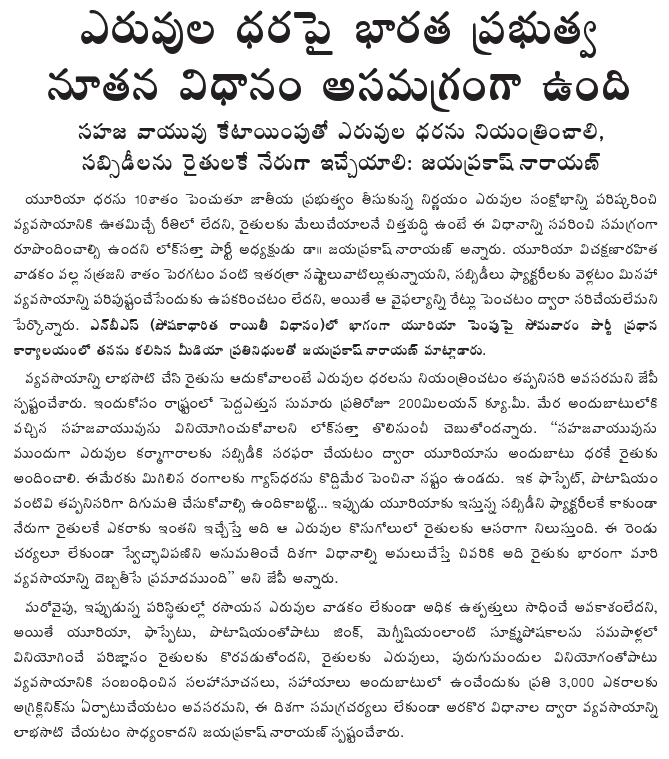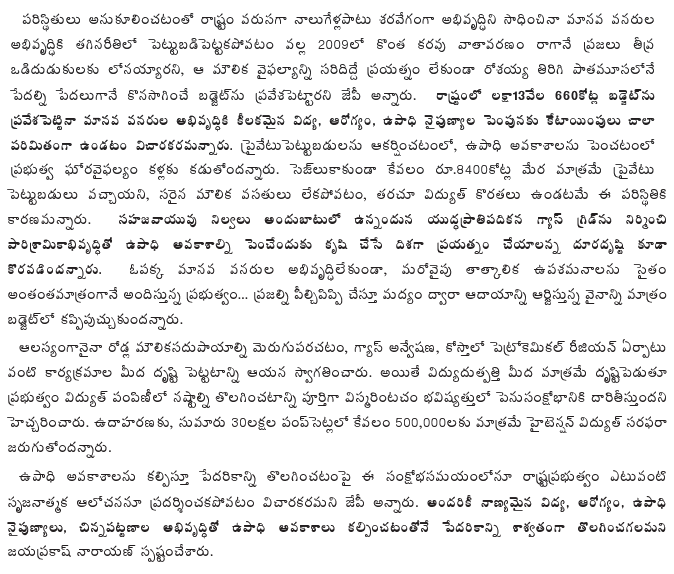Lok Satta welcomes Delhi move to Restrict liquor consumption
The Lok Satta Party today wholeheartedly welcomed the Union Health Ministry’s advice that State Health Departments be empowered to develop and implement an alcohol consumption control policy since Excise Departments focused more on revenue generation than on restricting consumption.
Talking to the media, party spokespersons Mr.Katari Srinivasa Rao, Mrs.K.Geeta Murthy, Mrs. N.Saroja Devi said the Union Government’s move was long overdue.
Irrespective of the party in power, the Governments in Andhra Pradesh have, far from restricting liquor consumption excelled in promoting it with a view to maximizing revenues. Andhra Pradesh earned about Rs.12000 crore during 2009-10 by way of excise, sales tax, license fee etc. on liquor.The revenue would shoot up to at least Rs.15000 crore during 2010-11.
The Lok Satta leaders pointed out that the State Government would not take any step which might dent its liquor revenue. “It offers incentives to Excise officials for maximizing sales, encourages unauthorized liquor outlets known as belt shops and would not close liquor outlets along highways and near educational institutions and places of worship.”
The Lok Satta leaders said, “the Andhra Pradesh Government earns national kudos for its welfare activities concealing the fact that it implements most of them with sin money. The State Government refuses to acknowledge that addiction to liquor has already ruined the lives of nearly 70 lakh families. It seems to believe that those who ruin their health with liquor could always fall back on its flagship health scheme, ‘Arogyasree’ to regain their health.
The Lok Satta leaders welcomed the Union Health Ministry’s plan to compensate the States for loss of revenue due to restriction on alcohol consumption. They hoped the Government of India would unveil a compensation scheme in the Union budget on February 26.
The Lok Satta leaders said that political parties are equally to blame for promoting liquor addiction. A survey by the party has revealed that most of the young voters tasted liquor for the first time in their lives during elections when rival parties plied them with free liquor.
If the political parties were genuinely interested in the health and welfare of voters, they should refrain from distributing liquor to induce voters.
They recalled that it was only the the Lok Satta Party which had taken an undertaking from its contestants in all elections that they would not induce voters with money or liquor.



